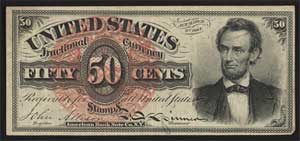
Personal finance tips can come in handy when you are trying to improve your financial situation. Economic struggles in the past several years have really turned some people’s lives upside down.
In September, 2012, there were 12.1 million unemployed people. That’s a lot of people struggling to make ends meet any way they can.
To help you through this tough economic time, make sure that you help yourself by doing some of these practical things.
Protect yourself
- 1. Get a credit report every year so that you can make sure your credit is in good standing.
- 2. Scan everything in your wallet. In case of theft, you’ll have all your account numbers and contact information available.
- 3. Stop overdraft fees by going online and hooking up your checking account with a savings account.
- 4. Sign up for an alert that warns you when your account reaches whatever amount you choose.
- 5. Keep well organized financial documents for tax purposes
- 6. Diversify your sources of income.
Setting Goals
- 7. Decide what you want to do with your money.
- 8. Cover the necessities first
- 9. Use free websites for tracking goal setting
- 10. Choose some new starting points to hope for the best but plan for the worst.
Savings Strategies
- 11. Start saving at an early age.
- 12. Save money on a weekly basis and leave it alone for a while.
- 13. Order free information for your vacation planning.
- 14. For older folks, estimate your retirement benefits online at www.ssa.gov where you can put in your social security number and estimate your retirement benefits.
Debt Management
- 15. Use your tax refund to pay off high interest credit card debt.
- 16. Go to the websites where you have credit card accounts and sign up for an alert to remind you 10 days prior to the due date.
- 17. Request a reduction in your credit card interest rates.
- 18. Be grateful that your debt is not as big as the country’s debt.
Daily Living
- 19. Take an oath of financial honesty, with yourself and with others.
- 20. Use your local library instead of purchasing books.
- 21. Eat at home. Avoid restaurants to limit calories and cash expenses.
- 22. Reassess your possessions and see what you can live without.
- 23. Tell a friend what you are saving for and ask for emotional support.
- 24. Practice self-monitoring. Track spending using software like quicken or see if your online banking has a budgeting feature and track it for free.
- 25. Beware of advertising campaigns to entice you to spend more on house-hold goods. Proctor & Gamble, will increase advertising expenses by 20% in 2010.
- 26. Shop at cheaper stores. You can get Egyptian cotton sheets at discount stores.
- 27. Recognize buying mistakes and vow not to make them again.
- 28. Give away things you don’t need to make room for your new life.
- 29. If you are suffering from depression about your finances, discuss it with your doctor.
- 30. Learn to live with less – do you really need everything you have stashed away?
Your net worth to the world is usually determined by what remains after your bad habits are subtracted from your good ones.




